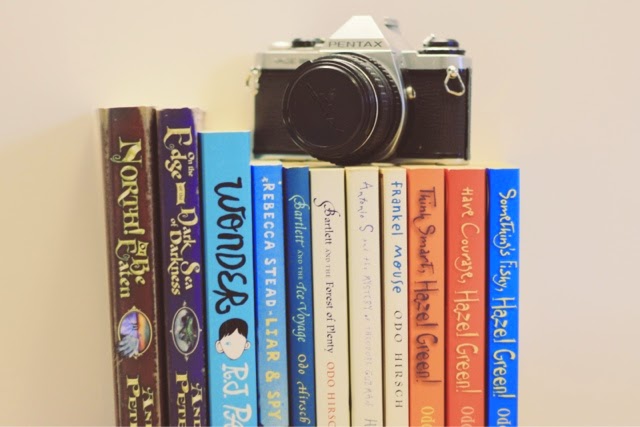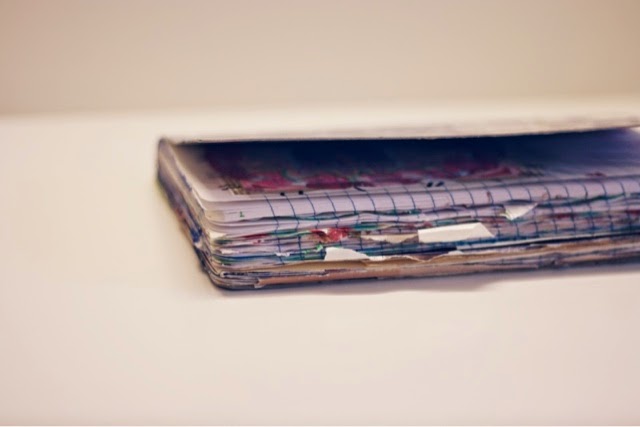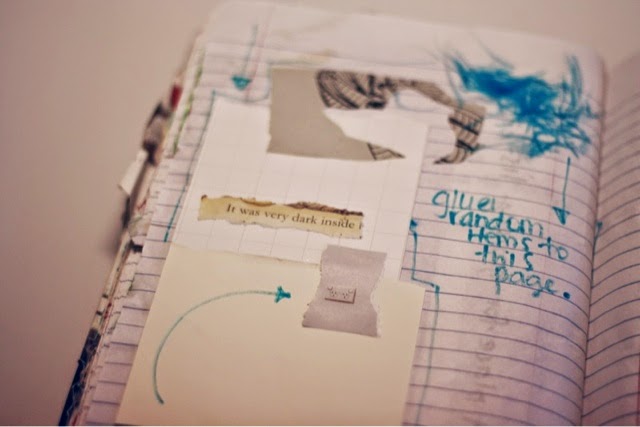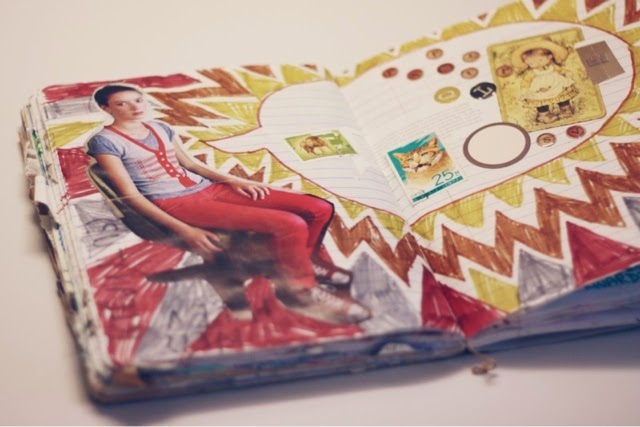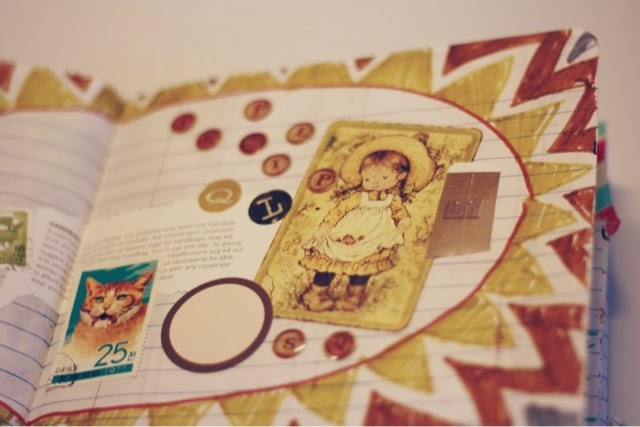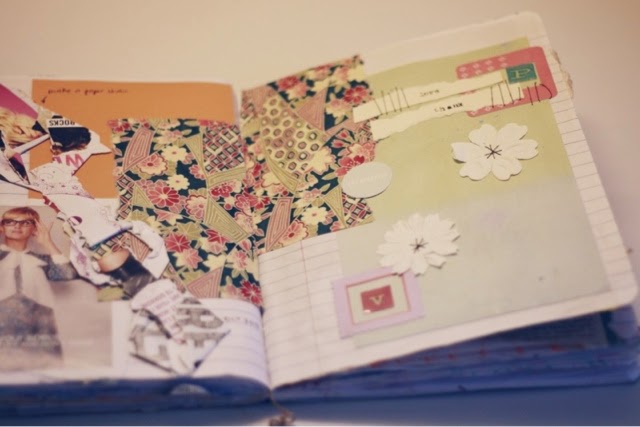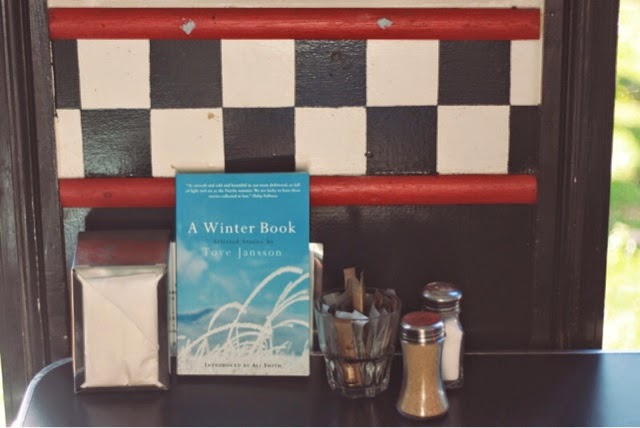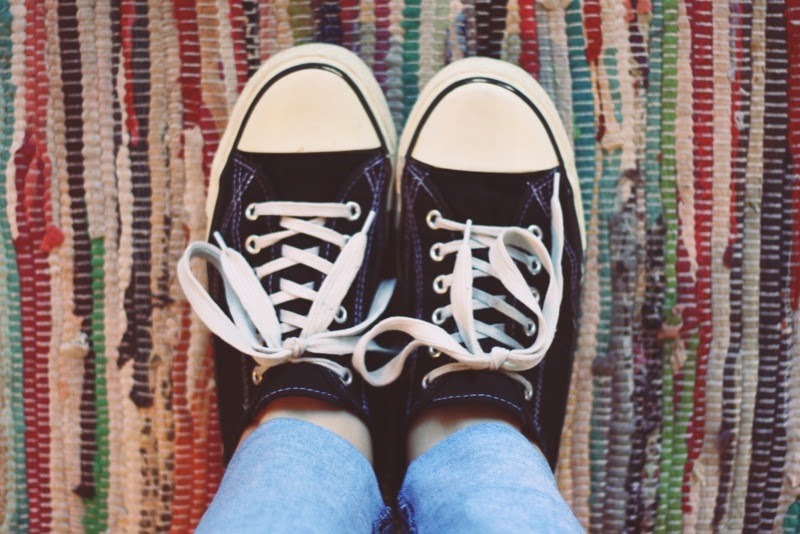
I know I’ve mentioned it before, but whenever I think of adulthood -- or what I once thought it would be -- I remember a project we were tasked with in primary school. On a piece of paper segmented into four rectangles, we were meant to draw projections of our future selves. The future self that stands out the most is me as a woman in my twenties or thirties. I am wearing a shockingly attractive canary yellow skirt suit (most probably influenced by Princess Diana, I’m thinking) and a matching pair of yellow patent leather pumps. My heels are high, my hair is long, and my handbag (also yellow) swings out from my hip, suggesting that here is a woman who is going places fast. I don’t know what I imagined this future woman doing, but it was important and it involved an office. Yes, an office, little baby past-Danielle. Most likely on the twenty-third floor. With a snappily-dressed personal assistant who would carry that handbag when I needed both hands free for doing important business stuff. You know it.
Oh baby little dreams, you know what I think of you? I think: HA HA HA HA HA. (And not just because of the canary yellow, which was never going to look good on anyone except Lady Di.)
I have never worn a skirt suit in my entire life. I have like three items of clothing with actual lapels and the closest thing to a suit is a pseudo-biker jacket. I have also never worn high heels. Ever. The intense surgery I had on my feet as a baby took care of that. Of course, they’re the same feet I had when I drew the picture, but maybe while I scribbled, I was thinking puberty was going to miraculously give me princess feet. Puberty didn’t give me princess
anything.
It’s more than that, though. The idea of wearing power suits and working on the twenty-third floor of some swish high-rise is a bit terrifying. I still wear pink hi-top sneakers. I have a penchant for ugly cardigans. Sometimes the
Captain Planet theme song gets stuck in my head for no reason at all. I am so far from being the poised businesswoman dressed head to heels in Pantone #14-0848 (Mimosa) that occasionally it hits me: I might be letting my big-dreamer younger self down. Or, perhaps even more terrifying: I worry that I still am my big-dreamer younger self, masquerading as a grown up and telling myself I’ll be the power-walking hair-swisher some day.
I think, though, that the more honest truth is that my definition of adulthood has changed. I don’t see myself needing to attain the executive office because adulthood is more than that and less than that. I’m rewriting my definition because I’m an adult now but I’m not the adult I thought I’d be. Which sounds like a terribly backwards Gen Y method for coming up with anything, and not in a good way. “Let’s do this thing and see what it becomes and then let’s call it what we think it looks like.” Flaky, I know.
But my total failure to become what I thought I’d be reminds me that I actually no longer want to be that person. Who knows if I ever did? For most of my childhood and teens, I resisted the entire idea of growing up, putting my foot down against the unwished-for intrusion of hormones, responsibility, and the inevitable decline into life as the kind of boring person who would rather talk than play. Eventually I reconciled to the idea of adulthood, but I subconsciously filed away certain new parameters under which such a state of being would be attained. Now that I have attained said state of being (mostly through no other virtue than that I recognise that it has happened), I realise that once again I’ve failed to master any of the steps I thought were required. Or if I somehow reached them, they turned out to be far less impressive than I’d hoped.
For one thing, I thought that an aura of busyness was the glamorous external proof of a gloriously adult life. Double-booking events? So mature. Having something on every evening? Seriously cool. Having to schedule phone calls with your own sister? Man, that is Adulthood with a capital A. Actually, it’s not. It’s the curse of our age, and being busy says nothing about age or maturity; it says you either have too much on your plate, or you’re a bad manager, neither of which are particularly fantastic. I have been tear-your-hair-out busy, and it doesn’t make me feel more adult. It just makes me feel tired.
I was sure, too, that adults always know what to say. No matter what comes at them, they can answer with a gentle laugh or a sympathetic frown. Adults don’t regret the things they say. They certainly don’t drive home after parties replaying cringeable moments in their heads. And they find a way to say yes to everything, mostly because they are good at everything, so nothing is ever a problem. (Nope. No. No. No).
Similarly, I thought adulthood means curbing your enthusiasm and being mildly interested in things rather than a rabid fan. Adulthood also means growing out of the things you once loved. Not just some things, but all of them. Of course, when I believed this initially, I had forgotten about the existence of Batman. So there’s that.
Adding to the enthusiasm thing, all adults are supposed to closely hold the secrets of the universe within their psyche. They are neither openly enthusiastic nor insecure. They also keep a lot of thoughts private, which makes them seem aloof and mysterious and cool. Try as I might, I don’t tend to hold my own secrets very closely (behold, evidential artefact #72: this blog). I’m intrigued by the humanity of humans, by this bizarre shared experience of being people in this world together. I believe in openness and honesty (with discretion, at the right time). I care about authenticity and genuineness. I think we have a lot to offer each other, and we do that by sharing. Yes, I still find the mystique of mysteriousness to be ridiculously compelling, but I’m learning that it’s not necessarily any more adult than being a (mostly) open book.
Of course, my original view of adults also held that they have all the answers. They know what to think and they know when to think it. They are sure of what they believe. They are sure they are sure. I was actually like this once, and it was a really confidence-boosting time to be alive. I had so many answers and so few questions! I was interesting! Self-assured! Articulate! Actually, I was probably quite smug and self-satisfied and if you encountered that version of me, I am genuinely sorry. I don’t have all the answers any more. I major in uncertainty, and sometimes this frustrates me. Whether this is a failing of adulthood, a failing of myself, or not even a failing at all, I don’t know. But sometimes I feel that uncertainty is a healthier place to rest. Clinging certainly in the uncertain places, finding peace with my own lack of answers/resting in the wisdom and grace of others, fits far more closely with the Judeo-Christian worldview I hold to. It’s a belief system that acknowledges neediness and turns it into strength. Its leader shrugged off divinity to embrace the weakness of humanity. He calls to “all who are weary.” Less answers means more need, closer communion. You don’t have to be inherently awesome, but you will be awesomely loved.
Most of all, adults don’t talk about being adults. They just are, and they don’t need to analyse or examine it because they’re good at it without thinking. They don’t look at the chicken curry bubbling in a crockpot and think, “This is adulthood!” But I, who cannot adult without recognising my adulting, relish the small things that remind me I’m a grown up. Buying a clothes airer, for example. Pulling apart the plumbing under my vanity unit and putting it all together again. Having obscure ingredients in my pantry just when I need them. Realising I would rather stay in some nights than go out every evening and that’s a choice I get to make. These little rites of passage are, of course, as arbitrary as the wattle-coloured handbag and the fancy job. But I’ll take them, because adulthood isn’t my childhood fantasy any more; it’s reality, and I find I rather like it.
Finally, adults certainly don’t say “the end” at the conclusion of their stories, because that’s a thing left over from fairytales, and adults have outgrown fairytales.
(Myth: BUSTED).
THE END.
----------
Conversations:
- Cora Lynn -- lovely to get a comment from you! It made me grin; I love strong book opinions/feelings :D
- Emily Dempster -- well, I do hear you there. If you can't go all out with roses and lace on a romantic book, then when can you?
- Jasmine Ruigrok -- ooh, I had totally written my blog post from the perspective of someone who's just like "OOH BOOKS PRETTY!" but it added a whole new level thinking about it from the perspective of someone who designs book covers themselves. Some cool insights, thank you!
- Jessica -- I am so with you on not wanting to see a photo representing the character. I'd much rather see no physical depiction of the character and get to form my own opinion of what he or she looks like based on the author's words. But if there is going to be a picture -- art, not photo!
- Meaghan -- thank you, milady!
- Rachel Lyn -- thank you for dropping by and leaving a comment. Totally with you on the minimal cover preference/no people pictures thing!

